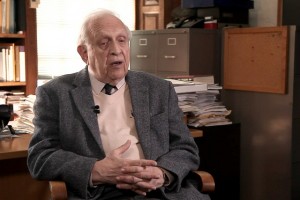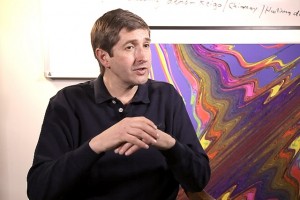Collisions of Elementary Particles with Atomic Nuc...
Nobel Prize laureate Roy Glauber on Rutherford's experiments, exploring uranium fission products, and developm...
What are the advantages of an atom interferometer over laser-based methods? How are we be able to measure the index of refraction of an atomic gas? Professor of Physics at Massachusetts Institute of Technology, David Pritchard, answers these questions.
An instrument in which atoms interfere could be hundreds or thousands of times more sensitive than the kind of sensitive measures you can already make with lasers. Now, that’s the good news. The bad news is we don’t, at least until we had Bose-Einstein condensates, we didn’t have any sources of coherent atoms, like the coherent photons that come out of a laser.
What can we do to utilize the sensitivity of atoms? Well, one thing we did was take a metal sheet and placed an electric field on one side, but not on the other side. When atoms go through an electric field they have a property called polarization. Polarizability is a number characterizing the ability that an electric field can pull the electrons away from the center of an atom. The atom going through the electric field would either be accelerated, decelerated a little bit, or would have its energy change so that it would shift the fringes. That’s a very sensitive measure of the interaction with the electric field. So we were able to measure the polarizability about 20 times better than it had been measured before.
I see two futures for atom interferometers that are very intriguing and interesting at the present time. The first one is measuring fundamental constants. Just the fact that atom interferometers are so sensitive that we can measure things like the recoil velocity of an atom, when a single photon hits it. This will enable us to determine things like the charge of the electron and other basic parameters, maybe the fine structure constant can also be determined better.

Nobel Prize laureate Roy Glauber on Rutherford's experiments, exploring uranium fission products, and developm...

Physicist Mahdi Godazgar on the arrow of time, Schrödinger equation, and Einstein's relativity theory

Physicist Ronald Walsworth on quantum mechanical transitions inside atoms, blue and red shift for GPS, and use...